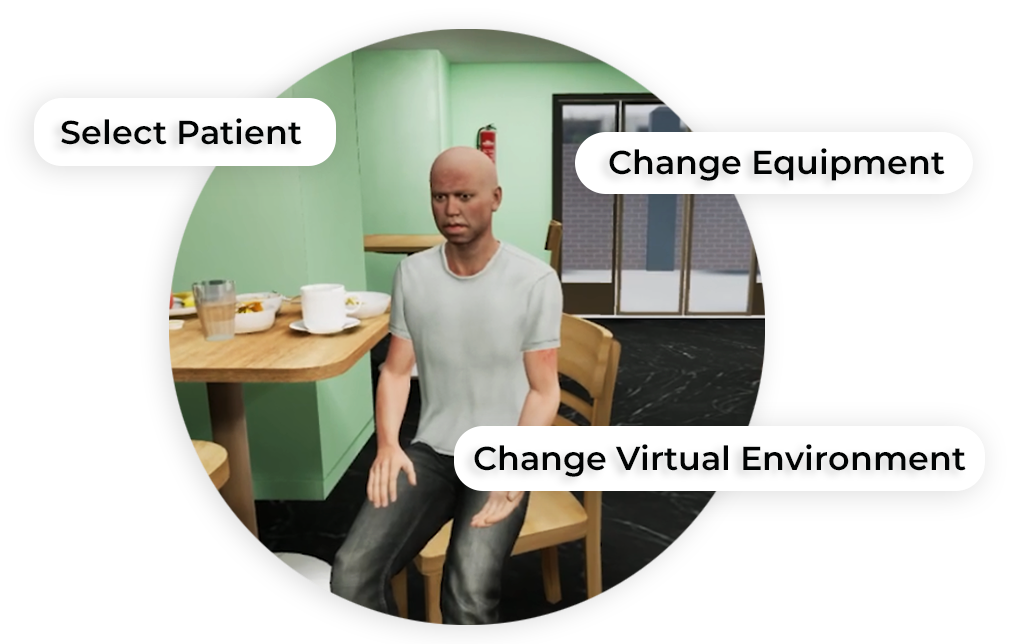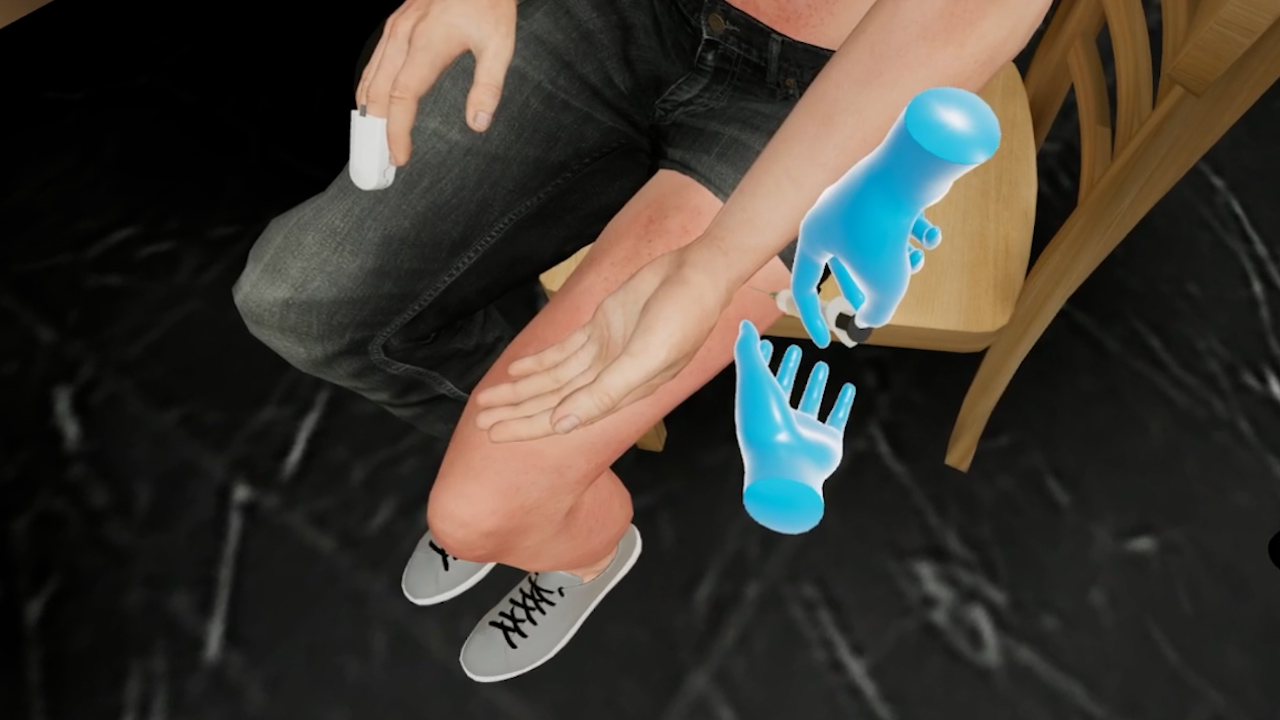EMS Anaphylaxis
Fifty-one-year-old Jason Smith was having breakfast at a restaurant when he developed an allergic reaction. He is struggling to breathe and has visible rashes on his body. The EMS was notified immediately.
This open scenario is designed to expose learners to a case of severe anaphylaxis and provide practice in managing the case.
- Initiating emergency treatment of anaphylaxis
- Monitoring patient vitals
- Administering medication to stabilize patient

- American College of Emergency Physicians. (n.d.). Anaphylaxis: Recognition and management. Retrieved from
- Medscape. (2023). Emergency management of anaphylaxis.
Customize Your Program
Get rid of the editor. Adopt in-VR customization.
MedVR Education is bringing to you in-VR customization that will enable you to customize your procedural simulations by making selections from a range of feature choices.
- Select patient from a diverse background
- Choose preferred virtual environment
- Configure patient vitals
- Define simulation duration
- Create patient history and train with AI-Humans
- Customize session-end debriefing
- …..many more to come

 Multi-playerSessions
Multi-playerSessions Physics-based Interactions
Physics-based Interactions
Core Skills Training

Anaphylaxis Management
As part of this multiplayer open scenario, the learner will reach the scene as part of the EMS team. When the EMS arrives, the patient is complaining of throat tightness. The learner will monitor the patient’s vitals and start the patient on IM epinephrine in the left lateral thigh. Five minutes later a second dose is administered to stabilize the patient.
This scenario is set in a photorealistic environment and all necessary affordances are made available to assist learners in performing their tasks with efficiency and effectiveness.
All necessary affordances are provided to complete the procedure with efficiency.
Debriefing
End-of-task debriefing to assess one’s performance, evaluate actions, and get the most out of the training. Examples of topics being touched upon in the debriefing include the following:
- Thorough patient assessment
- Completion of necessary steps
- Correct medication administration to patient
- Sequential completion of task
- Execution of time-sensitive tasks






